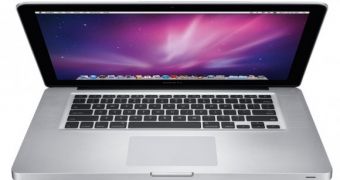Research conducted by market intelligence firm IHS iSuppli has revealed that although tablets like the iPad are enjoying a great deal of popularity nowadays, notebook PCs will live to fight another time.
Around 2015, to be precise. That’s when the full-fledged laptop computer that uses a keyboard instead of a touchscreen will come back to bite tablets like Apple’s iPad, according to IHS.
Why? Because laptops still play a key role in businesses, as well as for regular consumers.
“Following the launch of Apple’s iPad and other high-profile devices, consumers have been bombarded with media tablet advertising and press coverage,” said Matthew Wilkins, principal analyst for compute platforms research at IHS.
“And with the media tablet portrayed as providing the same capabilities as the notebook PC, consumers are considering media tablets to be an alternative to notebooks. This has caused notebook sales growth to slow down compared to past years.”
However, Wilkins notes that worldwide notebook unit shipments are expected to rise to 324.9 million in 2015, up 104.8 million from 220.1 million in 2011.
IHS believes “the notebook market will continue to expand because of the key role that the platform plays among businesses and consumers.” This is expected to happen when tablets start to lose their flair.
But that’s still far off, according to the marketing intelligence firm. For now, Apple is in command:
“Thanks to its strong brand image as well as astute product and price positioning, Apple’s iPad has enjoyed overwhelming success,” reads the IHS report. “As a result, the global media tablet market has exceeded growth expectations since tablets were released to the market at the beginning of the second quarter of 2010.”
The firm forecasts that global media tablet shipments will reach 60 million units by year’s end. This will translate into a 245.9 percent jump from 17.4 million in 2010.
Tablet shipments are expected to increase to 275.3 million in 2015, said IHS.

 14 DAY TRIAL //
14 DAY TRIAL //